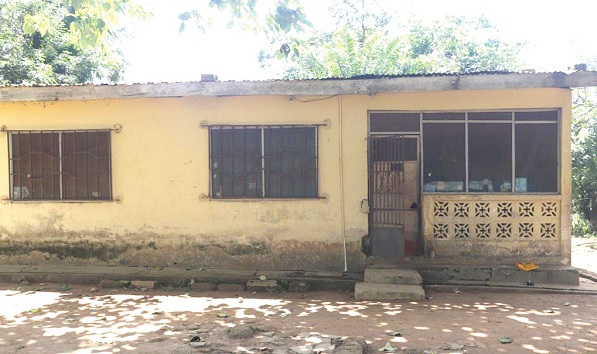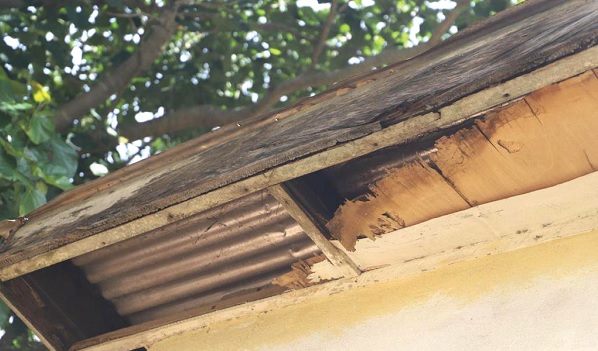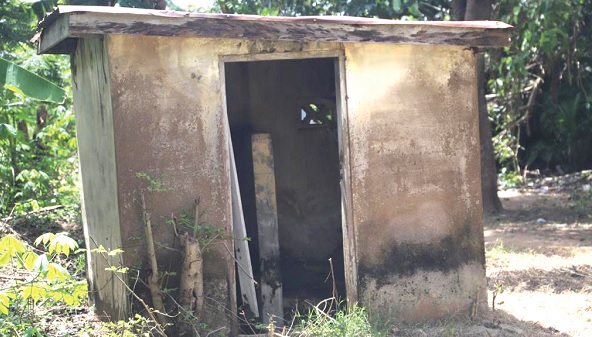
Reptiles invade Nfensi school, teachers abandon bungalow
Two teachers and their families who earlier occupied a two-unit teachers’ bungalow at the Nfensi D/A Junior High School have indefinitely abandoned their official residence for fear of being attacked by reptiles.
They have since sought shelter elsewhere in the community and in Kumasi after snakes and scorpions found their way into their living rooms, mostly at dawn.
Aside from the feeble doors to the bungalow which make it easy for these predators to sneak through to their rooms, the ceiling has also been identified as the main route for the reptiles and arachnids.
Portions of the ceiling have removed as a result of heavy winds, making it porous for the preys to enter.
The roofing sheets have also developed several leakages, forcing the school authorities to improvise by placing concrete blocks on it to avoid further destruction.

Portions of the ceiling destroyed, making it accessible to the predators
Moreover, the bungalow is surrounded by a canopy of giant trees, making the environment conducive for such predatory species to breed.
Appeals
In an interview with the Headmaster of the school, Nicolas Frimpong, he said all appeals to get authorities to attend to their concerns had fallen on deaf ears.
He said this on the sidelines of a durbar to hand over a multipurpose library facility to the school by the Moments of Glory Prayer Army (MOGPA), last Thursday at Nfensi, in the Atwima Nwabiagya North District in the Ashanti Region.
According to the headmaster, the two teachers were not the first to have vacated the bungalow for similar reasons.

The teachers’ toilet facility now desolate
He said the school, established in 1963, with an increasing current population of over 200, had seen little or no renovations, and appealed to the government and other benevolent organisations to come to its aid.
Lavatory
Another concern he raised was the absence of a lavatory for the schoolchildren, a situation which pupils took advantage of to go home when nature called, and in most cases never returned to school.
That, he said, affected contact hours with the pupils and subsequently put these young ones at a disadvantage in pursuing quality basic education.
